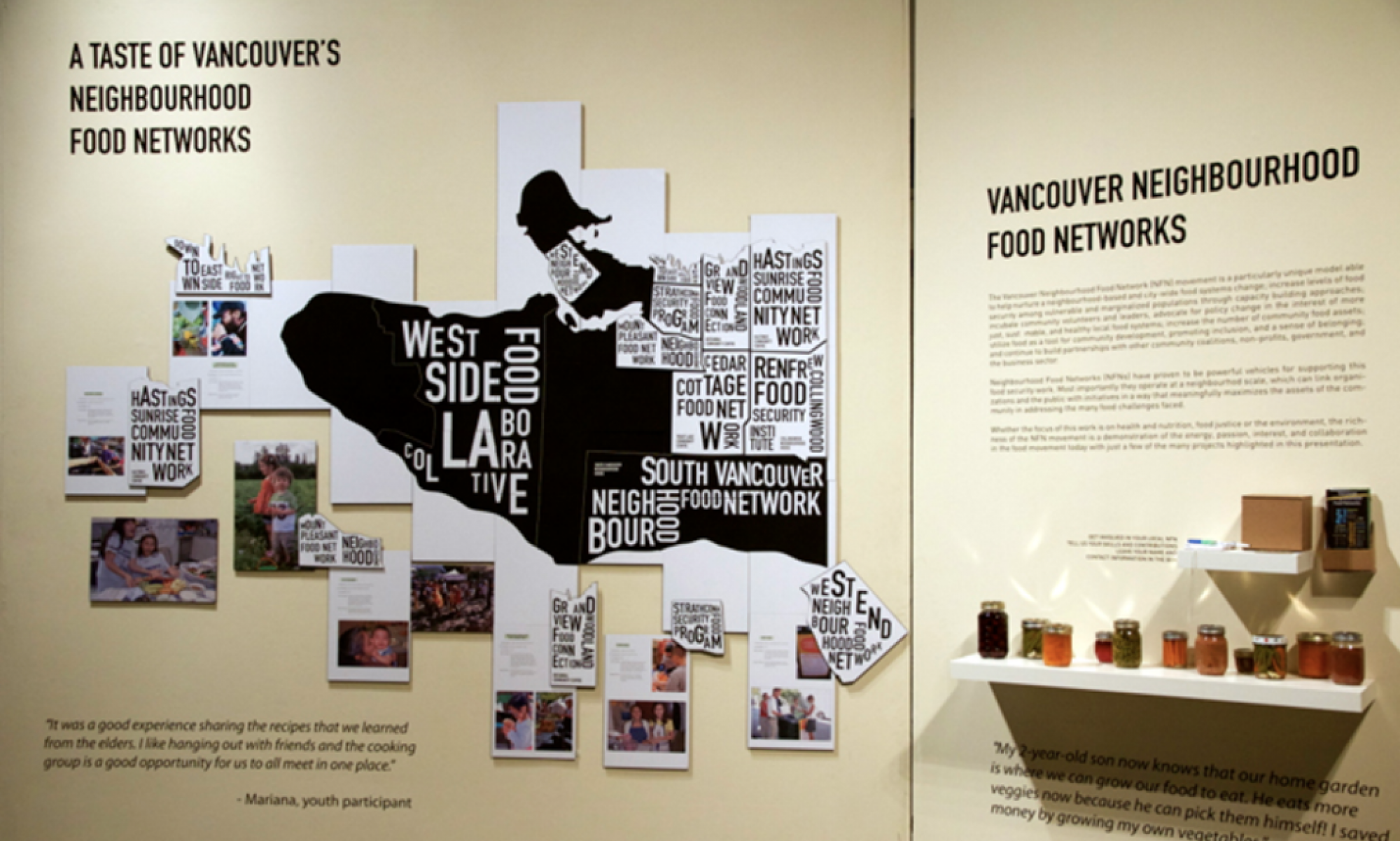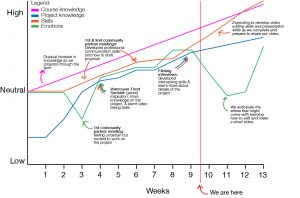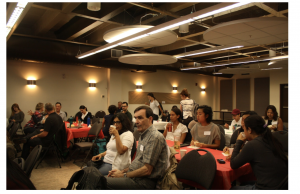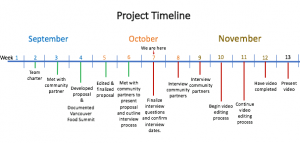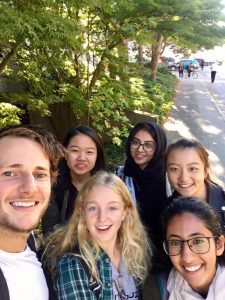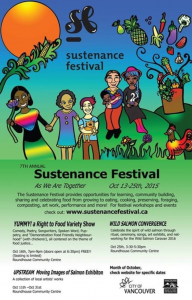Final thoughts and reflections
Around three months ago, we were in the midst of choosing our community project out of a list of twenty or more. Now that we look back, it is clear for us to see how far we’ve come both individually and as a cohesive unit. There is no doubt that this incredible learning opportunity had it’s fair share of ups and downs followed by many moments of significance. For the purpose of this blog post, we will fully dive into one of the significant moments that we encountered throughout this journey.
What?
As you might recall, our group was assigned to document the inclusion process of the Sustenance Festival. Our end goal was to create a video piece that would be of effective use to our community partners – the Vancouver Parks Board (VPB). We also hoped that this video would be of value to other organizations that were involved in similar initiatives.
To achieve this, we carried out multiple interviews with the key holders of Sustenance Festival to gain context and content for the video we were about to make. This process began around mid-October and came to an end around the beginning of November.
We found our moment of significance during the process of actually making the video. After conducting six interviews, we were left with hours and hours of video footage and audio clips that had to be analyzed. We had make sure to gather and assemble our raw data into a coherent narrative. Our community partners expected the video to tell a story of Sustenance Festival. A story that would cover everything from what the festival is about to success and challenges that the team faced while they were in the midst of this process. This was around the time when we felt like we were being thrown in at the deep end, not knowing where to start.
The most intimidating part prior to the video making was thinking about how we could pack all relevant bits and pieces into 8-minutes. We were convinced that the most challenging part of this process would be to pick out important information from the hours of interview footage that we had. We also agreed that every single one of the interviewees had valuable insight that would add to the story telling. An unexpected challenge came in the form of a technical issue with the interview footage. Some interviews had terrible lighting and audio which unfortunately really affected the quality of the overall presentation.
With all these problems at hand, we had to come together as a group to generate ideas and creative strategies to overcome these challenges.
So what?
During our third flexible learning week, we had a meeting at the Vancouver Parks Board with Rebecca who wanted to check in with us to see how the entire process was going. We told her that we hadn’t yet discussed as a group about how we’d like to begin the process and that we were open to brainstorming some ideas with her. We talked about the structure of the video and how we’d want it to flow into an actual story. After going back and forth with a couple different ideas, we decided to use the ‘What? So what? Now what?’ structure that we were all too familiar with.
This allowed us to break the video into three parts:
- What is Sustenance Festival? – introduce the festival, inform the viewers about why the festival was put on hold for a year, how the VPB began the process of inclusion and why it matters.
- Success and challenges – to showcase multiple perspectives on the ups and downs of starting an inclusion process.
- Future of Sustenance Festival – the overall lessons that were learned throughout the process, any advice they’d like to give to other organizations that were planning on approaching the same issue and how they’d like to see Sustenance Festival going forward i.e. secure funding.
Now that we had a rough idea of how the video would tell a story, we had to decide on extracting the relevant content from our raw data. The long weekend was approaching and we decided that it would be best if we used that spare time to listen to the audio recordings. The initial plan was for all of us to listen to all six audio recordings while taking notes on a google doc that would be shared among the group. This document would have the exact time (in minutes and seconds) where we thought that the interviewee had answered in a way that it would align with any of three categories mentioned above. However, due to time constriction, we split the work into parts, and each of us was responsible for listening to one of the interviews and partly transcribed the video into notes with time points followed by a summary of ideas. So when we came together, we were able to decide which parts of the interview to go into the video and create a cohesive narrative. At this stage, we came up with a 8-minute rough cut audio that carries all the information we want to present in our final product.
In order to deal with the technical issue, we decided to have a meeting with Duncan McHugh, a technician at LFS Learning Center. Duncan informed us that it is better to work from the video, because audio quality from the video has no significant difference from that in the audio recorder, and that it would be difficult to sync audio with video now that the audio has been cut into clips and put together. So we decided to start again with the video. Luckily, we noted down time points of audio clips that we cut from the original interview, so it was not as painful to find the corresponding video clips. In the end, we managed to come up with a 8-minute rough cut video, and more visual messages will be added in later.
Now what?
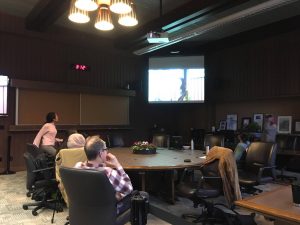
Final meeting at the Vancouver Parks Board
With nervous energy all around the boardroom, we presented an almost-complete version of the video to the people we interviewed. The feedback we received was extremely helpful even though we might have to wait a little longer to receive some extra footage and pictures to add as fillers. We are positive that the final version of the video will meet all the requirements of the Vancouver Parks Board and will be successfully used to obtain secure funding for the future of Sustenance Festival.
As we head into the last week ofthe term, our minds are geared to showcase our work not only to our instructors but to our fellow peers as well. This video that we spent hours piecing together tells the story of the Sustenance Festival, which is meant to be shared to highlight the value of working to create a more inclusive and just community in Vancouver. With a more in-depth perspective on the Sustenance Festival, we are prepared to share what we have learnt as a team and individually of what it means to work within the community and the intricacies of making a video. We hope to inspire other students to be involved in similar work related to food justice and to challenge themselves to step beyond the boundaries of UBC.
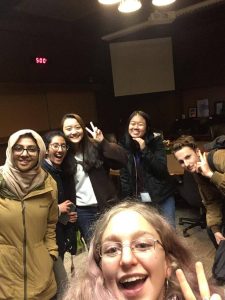
Final group picture
